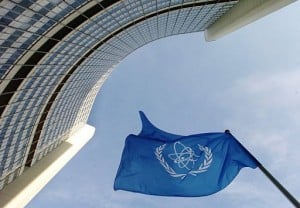The issue of Syrian cooperation with the IAEA has returned to the headlines as the UN General Assembly convenes this week. While Barak Obama’s stance on the Israeli-Palestinian front, and Mahmoud Ahmadinejad’s incendiary remarks have garnered the most attention, nuclear proliferation has also come to the fore with Syria right in the middle.

Syria back in the Spotlight at the IAEA
In remarks on Monday as part of the IAEA’s general conference, the agency’s head Yukiya Amano called on Syria (as well as North Korea and Iran) to come into full compliance with the IAEA. On Wednesday the Syrian Ambassador to the IAEA, Bassam Sabbagh, responded with strong denials of a lack of Syrian cooperation, and assurances that Syria would continue to cooperate with the IAEA in the future.
For those with foggy memories, or who are new to the issue, this controversy dates back to a peculiar site in the Syrian desert, allegedly a nuclear plant, which was destroyed by the Israeli Air Force in September of 2007. Der Spiegle does a full recount here. You could also look to my first blog on the subject from August 3rd of this year for further background here.
The reason this has turned into an ongoing issue is that Syria has largely denied the IAEA access to the site in question since an initial investigative team was allowed to visit the site in 2008. However, no further visits have been allowed which has called Syria’s compliance with the Atomic watchdog agency into question.
Any attempt to deduce the motives of the Syrian regime on the matter are purely speculative, but it seems to this humble blogger that a fledgling nuclear program would be a strong bargaining chip for Syria in future negotiations with both the US and Israel. From the Syrian point of view possessing nuclear material, or a nuclear capability of any kind, allows you to ask for much greater concessions at the negotiating table.
However, now that the site has been destroyed, and Israel has made clear that any future attempts to restart the program will meet the same fate, it would be in Syria’s best interest to use cooperation with the IAEA as a means of signaling good faith. By remaining intransigent, and continuing to refuse the IAEA access to the Al Kibar site, Syria merely provides ammunition for those who argue against the removal of sanctions and diplomatic cooperation with the Syrian state. President Assad has rightly kept the temperature of the matter low, preserving his freedom of movement on the issue. The US would be wise to provide him with a partner, in the form of an Ambassador, to help move past this episode and contribute to the broader regional issues that are at the heart of President Obama’s new diplomatic agenda.